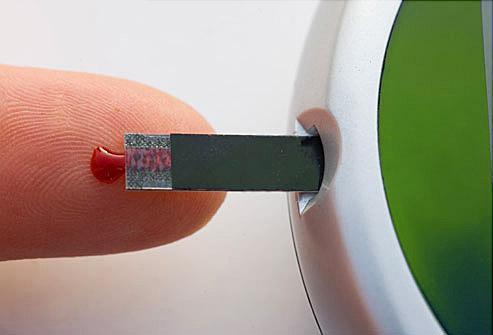Diabetes and Urination

Diabetes and urination problems often go hand in hand – which can be stressful. Dealing with these issues can affect your daily living and quality of life. According to the National Institutes of Health, more than half of people with diabetes have bladder dysfunction.
Difficulties with urination can happen as you get older, but when you have diabetes, bladder problems and urinary tract infections can start earlier in life and occur more often.
It is because diabetes can cause damage to the nerves that are responsible for urinary system health and function.
In general, women are more likely to experience leakage or urinary incontinence than men because of different anatomical structures and bodily changes from pregnancy and delivery. Men may experience dribbling, weak stream, intermittent flow and urethral obstruction.
Causes of Urinary Problems in Diabetes
Bladder problems can be caused by diabetesic nerve damage, nerve damage from other causes, injuries, infections and other
diseases. High blood sugar levels can cause frequent urination.
Risk is increased with poor diabetes management, high cholesterol, high blood pressure, excess weight, advanced age, smoking and a sedentary lifestyle. Insulin use increases risk for urinary incontinence.
Urinary Problems with Diabetes
Overactive bladder: Bladder spasms or contractions cause an urgent strong need to urinate more than eight times a day or more than two times at night.
Urine leakage or urinary incontinence can be a problem. Treatment options for overactive bladder include medication, bladder training methods such as timed voiding, electrical stimulation, Kegel exercises and surgery.
Poor sphincter muscle control: The sphincter muscles are internal muscles that control the opening and closing of bodily passages.
Poor control due to nerve damage may cause leakage if the muscles that control urine flow cannot tighten. On the other hand, it can be difficult to urinate if the muscles will not loosen. Treatment is usually with medication. Botox injections into the area around the sphincter have been found to help the muscles relax. However, the U.S. Food and Drug Administration has not approved Botox as a treatment for urinary sphincter control.
Urine retention: An inability to empty the bladder properly and completely. Urine retention can cause urine leakage, kidney damage, kidney infections and bladder infections. Treatment options include medication, bladder training methods such as timed voiding, use of a catheter to drain urine, urethral stent, bladder fullness awareness and lower abdomen massage. Medication, Kegel exercises or surgery might be treatments used to help with urinary leakage.
Frequent urination due to high blood sugar: When there is excess sugar or glucose in the blood, the kidneys work harder to remove it.
The brain gets the signal that water is needed to dilute the blood. If the kidneys cannot filter all the glucose, then excess glucose gets dumped into the urine. Fluid is taken from bodily tissues to help move the sugar to the urine. This leads to dehydration and thirst. As water is consumed to quench the thirst, urination happens more frequently. Drinking more water is good and helps the kidneys remove the sugar. Good control of blood sugar levels can help prevent any of this from happening.
Urinary tract infections: High blood sugar levels can create a fertile breeding grounds for bacteria and lead to urinary tract infections. These infections can cause frequent urination, pain or burning with urination, and urine that is reddish or cloudy. Women may experience a sensation of pressure above the pubic bone. Men may feel fullness in the rectum. Infections can occur in the urethra, bladder or kidneys. Kidney infections can cause additional symptoms such as nausea, back or side pain and fever. Urinary tract infections are treated with antibiotics.
by Elizabeth Woolley For Very Well
Be the first to post a message!